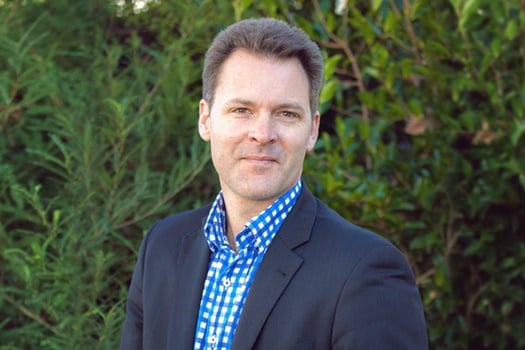
BlackmanSpargo was the recipient of the Rural Law award at the 14th Annual NZ Law Awards – we talk to Director Chris Spargo

Chris Spargo has always been a man with direction. He decided at age 11 that he wanted to be a lawyer, and by the age of 29 he was a founding member of his own firm, BlackmanSpargo, now celebrating its fourth consecutive New Zealand Law Award (and sixth overall). Specialising in rural law, he and his team have developed the BlackmanSpargo into an international firm. That comes from knowing what they want to do and doing it well.
“You know, for some clients the work that we do is only within a specialised field – so we don’t profess to be everything to everyone,” Spargo says. “We just want to focus on our specialization in terms of the work that we do and that’s led to our clients … in Europe, Asia, so different parts of the world.”
A third-generation dairy farmer, he stresses the importance to the firm’s success of the knowledge base they build outside the narrow ambit of technical law.
A “commitment to the rural sector doesn’t just mean that you need to be a good lawyer and have really good technical skills at the law. You actually need to understand the industry that you work in. So, for example, with forestry we have to make sure that we’re fully informed about what’s happening within the forestry industry as much as we can. The same with kiwi fruit. You know – understand it by going to these fruit meetings,” Spargo says. “Otherwise, how can you actually add value to the business if you don’t know how things work, how a kiwi orchard works, how a dairy farm works?”
For Spargo, it’s not a matter of being the best or being a “jack of all trades.” Rather, he says that “our view has always been that we want to be the best, but we don’t want to be the biggest in terms of what we provide to our clients.”

Chris Spargo
Having a precise focus also allows BlackmanSpargo to develop the kinds of people-first relationships that will hold the firm in good stead for many years. People have come to respect it as a firm that isn’t afraid to get its hands dirty. Spargo recalls one convoluted property deal his firm was involved in, that ended with his co-founder, Ian Blackman, coming back to the office with scratches all over his arms from having personally separated some barbed wire himself. The barbed wire remains in the office – as a memento.
And it’s the personal, relationship-building side of the firm that Spargo doesn’t think can be readily replaced by developing technology.
“Look, I don’t mind if computers are there to take and complete mounting tasks that nobody wants to do. That’s fine because it can free us up to do other things,” he says. “But my biggest concern through all of these [changes] is you can’t disrupt relationships. You know – a lot of our clients being rural clients … don’t necessarily a lot of times have contact with people because of where they are and what they do. Relationships are still going to be key and really important. You know – computers I don’t believe can actually replace it.”
One concern he has for the future of rural law and farms in general is the proliferation of red-tape regulations developing around the farming industry, which can be complex to navigate for lawyers – let alone farmers. The specialised – as opposed to generalist – focus of BlackmanSpargo will undoubtedly help them in this area. “Stick to your knitting” and “keep pushing the floor wheel” are mantras Spargo likes to quote. Keep doing what you’re doing, and keep doing it better.
Spargo says his personal motto is to always “be helping people.” That applies to clients, to family, and to co-workers. He wants “to see our staff be the best that they can be,” because “we’re not only here for the short term.” Developing younger staff means developing a legacy that will outlast the founders of the firm.
Spargo says that if he could give any advice to his younger self, “it’s probably to take your work-life balance more seriously.” While an avid sportsman, especially when he was a bit younger, he says that he’s had his day in sports (although he still goes to the gym three times a week) and that these days he spends more time focusing on his youngest son, who races cars. “You can’t be too selfish, that’s why you need to give them a chance … and give them all the support they want as well.”
But he wouldn’t counsel taking it too easy as a lawyer, particularly when you’re young. At that age, he says, the quickest way to develop is to learn as fast as possible – before family and kids take away a lot of your time. That way, you can develop a work-life balance when family comes round and it really counts. “I think, you know, I worked very hard when I was young, and I’ve probably got a bit more work-life balance now than what I had 10 years ago.”
With six New Zealand Law Awards, he obviously isn’t taking it too easy.